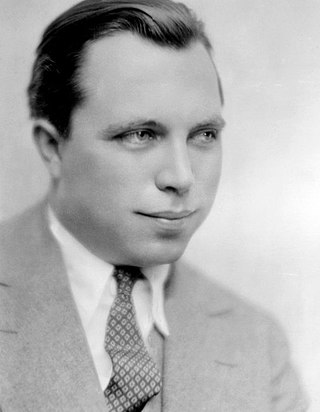
King Wallis Vidor was an American film director, film producer, and screenwriter whose 67-year film-making career successfully spanned the silent and sound eras. His works are distinguished by a vivid, humane, and sympathetic depiction of contemporary social issues. Considered an auteur director, Vidor approached multiple genres and allowed the subject matter to determine the style, often pressing the limits of film-making conventions.
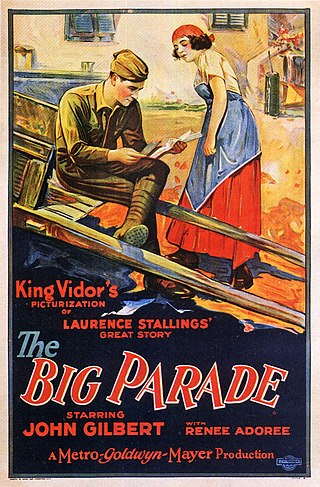
The Big Parade is a 1925 American silent war drama film directed by King Vidor, starring John Gilbert, Renée Adorée, Hobart Bosworth, Tom O'Brien, and Karl Dane. Written by World War I veteran, Laurence Stallings, the film is about an idle rich boy who joins the US Army's Rainbow Division and is sent to France to fight in World War I, becomes a friend of two working class men, experiences the horrors of trench warfare, and finds love with a French girl.
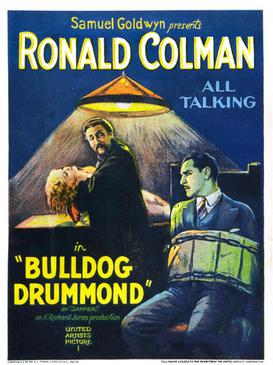
Bulldog Drummond is a 1929 American pre-Code crime film in which Hugh "Bulldog" Drummond helps a beautiful young woman in distress. The film stars Ronald Colman as the title character, Claud Allister, Lawrence Grant, Montagu Love, Wilson Benge, Joan Bennett, and Lilyan Tashman. Produced by Samuel Goldwyn and directed by F. Richard Jones, the movie was adapted by Sidney Howard from the play by H. C. McNeile.

Adam Warlock is a fictional character appearing in American comic books published by Marvel Comics. The character first appeared in Fantastic Four #66–67 created by Stan Lee and Jack Kirby, originally named Him. The character would later be significantly developed by Roy Thomas and Jim Starlin. Debuting in the Silver Age of comic books, the character has appeared over several decades of Marvel publications, and starred in the titles Marvel Premiere and Strange Tales as well as five eponymous volumes and several related limited series.

Show People is a 1928 American silent comedy film directed by King Vidor. The film was a starring vehicle for actress Marion Davies and actor William Haines and included notable cameo appearances by many of the film personalities of the day, including stars Charlie Chaplin, Douglas Fairbanks, William S. Hart and John Gilbert, and writer Elinor Glyn. Vidor also appears in a cameo as himself, as does Davies.

Henry Stephenson was a British actor. He portrayed friendly and wise gentlemen in many films of the 1930s and 1940s. Among his roles were Sir Joseph Banks in Mutiny on the Bounty (1935) and Mr. Brownlow in Oliver Twist (1948).
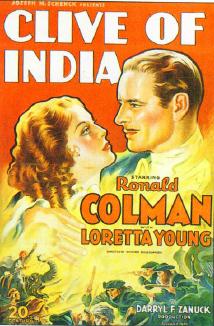
Clive of India is a 1935 American historical biographical film starring Ronald Colman about the life of Robert Clive. It was based on R. J. Minney's play of the same name, and was co-written by Minney and W. P. Lipscomb and directed by Richard Boleslawski. Colin Clive, who appears in the film, was a descendant of Clive.

H. M. Pulham, Esq. is a 1941 American drama film directed by King Vidor and starring Hedy Lamarr, Robert Young, and Ruth Hussey. Based on the novel H. M. Pulham, Esq. by John P. Marquand, the film is about a middle-aged businessman who has lived a conservative life according to the routine conventions of society, but who still remembers the beautiful young woman who once brought him out of his shell. Vidor co-wrote the screenplay with his wife, Elizabeth Hill Vidor. The film features an early uncredited appearance by Ava Gardner. In February 2020, the film was shown at the 70th Berlin International Film Festival, as part of a retrospective dedicated to King Vidor's career.
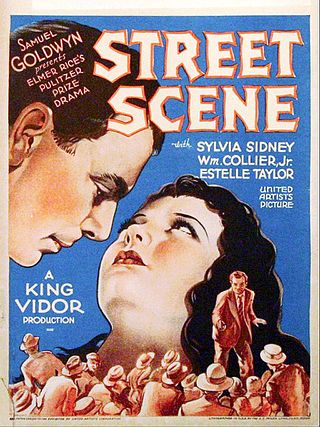
Street Scene is a 1931 American pre-Code drama film produced by Samuel Goldwyn and directed by King Vidor. With a screenplay by Elmer Rice adapted from his Pulitzer Prize-winning play of the same name, Street Scene takes place on a New York City street from one evening until the following afternoon. Except for one scene which takes place inside a taxi, Vidor shot the entire film on a single set depicting half a city block of house fronts.
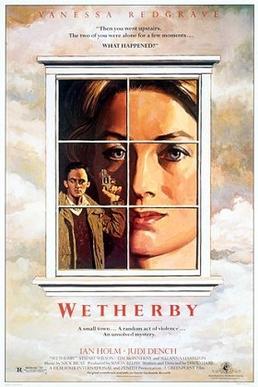
Wetherby is a 1985 British mystery drama film written and directed by playwright David Hare and starring Vanessa Redgrave, Ian Holm, Judi Dench, Stuart Wilson, Tim McInnerny, and Suzanna Hamilton.
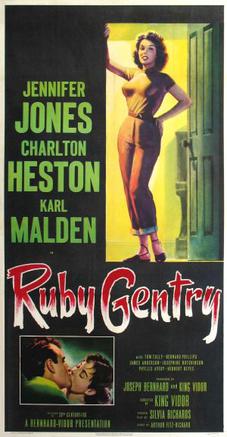
Ruby Gentry is a 1952 film directed by King Vidor, and starring Jennifer Jones, Charlton Heston, and Karl Malden. In February 2020, the film was shown at the 70th Berlin International Film Festival, as part of a retrospective dedicated to King Vidor's career.

Zena Dare was an English singer and actress who was famous for her performances in Edwardian musical comedy and other musical theatre and comedic plays in the first half of the 20th century.
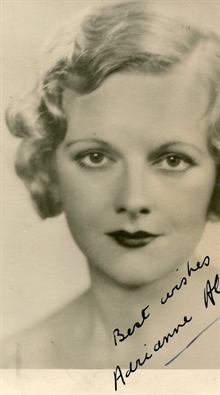
Adrianne Allen was an English stage actress.

The Real Adventure is a 1922 American silent drama film directed by King Vidor, based on the best-selling novel by Henry Kitchell Webster that was serialized in 1915 and published as a book in 1916. A print of the film is held by the Cinémathèque de Toulous. In February 2020, the film was shown at the 70th Berlin International Film Festival, as part of a retrospective dedicated to King Vidor's career.
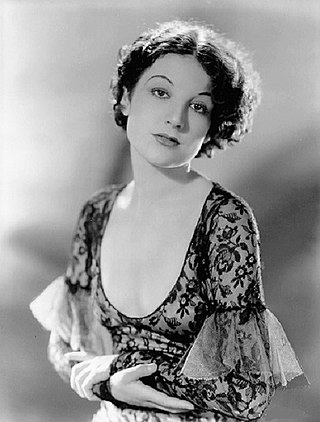
Phyllis Barry was an English film actress. Born in Leeds, West Riding of Yorkshire, England, to Seth Henry and Bertha Hillyard, Barry appeared in over 40 films between 1925 and 1947.
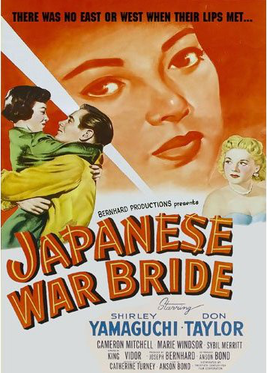
Japanese War Bride is a 1952 American drama film directed by King Vidor. The film featured the American debut of Shirley Yamaguchi in the title role. In February 2020, the film was shown at the 70th Berlin International Film Festival, as part of a retrospective dedicated to King Vidor's career.

Man Without a Star is a 1955 American Western film starring Kirk Douglas, Jeanne Crain, and Claire Trevor. Directed by King Vidor, it is based on the novel of the same name, published in 1952, by Dee Linford (1915–1971). A remake was made for television in 1968 entitled A Man Called Gannon. In February 2020, the film was shown at the 70th Berlin International Film Festival, as part of a retrospective dedicated to King Vidor's career.

The Texas Rangers is a 1936 American Western film directed by King Vidor and starring Fred MacMurray and Jack Oakie. The picture was nominated for Best Sound Recording at the 1936 Oscars. The film was inspired by incidents from Walter Prescott Webb's 1935 history book The Texas Rangers, A Century Of Frontier Defense but filmed in New Mexico.
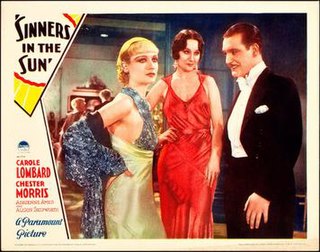
Sinners in the Sun is a 1932 American pre-Code romantic drama film directed by Alexander Hall, and starring Carole Lombard, Chester Morris, Adrienne Ames, and Alison Skipworth. It was produced and distributed by Paramount Pictures.



















